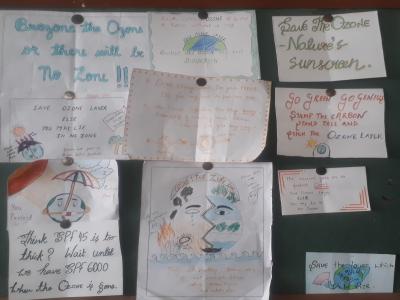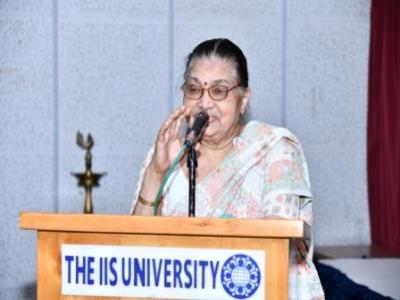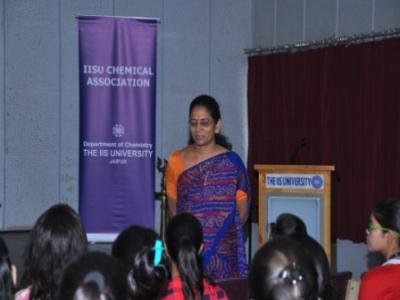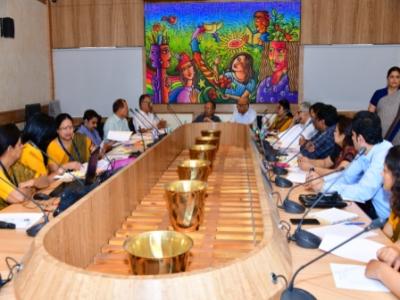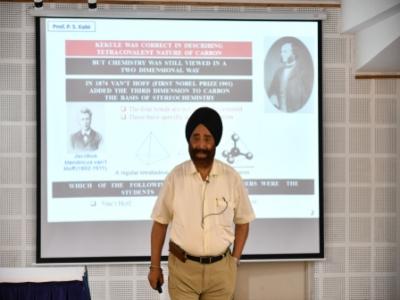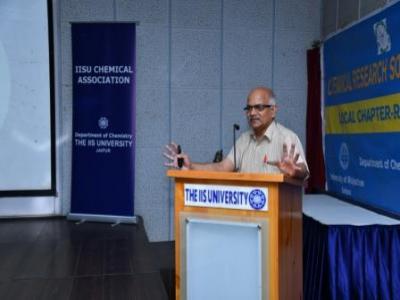Guest Lecture Report
Date- 27th and 28th July 2018
Venue- AV Hall
Organised by- Department of Chemistry, IIS University, Jaipur
Organised for- Postgraduate students, Undergraduate students and Research scholars
Speaker- Prof. Krishna Mishra
Details- Honorary Professor, IIIT Allahabad
Title of the Lecture- “Cheminformatics” and “Pharmainformatics”
Department of Chemistry, IIS University, Jaipur has organized a guest lecture on the topic “Cheminformatics” and “Pharmainformatics” on 27th and 28th July, 2018 respectively by Prof. Krishna Mishra, Honorary Professor, IIIT Allahabad. The fundamental necessity for a chemist in drug delivery is to know the property, structure and reactions of a chemical compound. It can be done by methods like spectroscopy and others techniques. She explained the importance of computational chemistry which uses the principles of computer science to assist in solving the chemical problems.
Cheminformatics is the use of computer and information technology to a range of problems in chemistry. The main three aspects of cheminformatics are Molecular stimulation, Information management and use of information. These insilico techniques are used in pharmaceutical companies in drug discoveries. It includes the drawing of structures with softwares like ISIS-Draw, ChemDraw, ChemWindow, ChemSketch, ChemReader. This technique has been used in modeling ,analysis & toxicology to check the toxicity so it is useful in drug designing, pharmacology, DNA, RNA designing, Protein designing alongwith the prediction of physical, chemical and biological properties. Chemmetrix is used for quantitative analysis of data by using mathematical and statistical methods. It helps in prediction of properties of new structures. She related Chemoinformatics and Bioinformatics and talked about Human Genome Project [HGP] as the greatest achievement of Bioinformatics. It is helpful in a way that genes from multiple species can be compared and some conclusion can be drawn.
Pharmacoinformatics is the combination of biology, chemistry, mathematicss and information technology. The main idea behind this field is to integrate different branches into a single platform resulting in a seamless process of drug discovery. It is the application of computers to the storage, retrieval and analysis of drug and prescription information i.e. personalized medicine. Personalized medicine is a medical procedure that separates patients into different group. Different people respond differently to the same therapy. To one similar drug people react differently as genetics is different. Many drugs work only on 30% of human population. They have been most helping in cancer treatment. For drug design, process must be viewed from different dimensions. Biomarker diagnostics helps to distinguish people/ patients. Binding site, molecular shape, molecular size, inhibitory properties of protein are necessarily considered for successful drug design. Role of Pharmacoinformatics is to store, track, and provide tools for analysis of these data.
Principle of drug development involves a lot of experimental and computational work. In this process, if the structure of target is known, DOCK and ANTIDOCK are software applications which match potential ligands to binding sites by calculating steric constraints and bond energies. Enzymes act as catalyst. There are substrates which may bind to enzyme through various ways like lock and keys binding. It is similar to acid or base catalysis. There is competitive and noncompetitive inhibition.
She ended her lecture with a variety of ideas and suggestions to students to have a nice career growth in the field of Chemistry.
View Photos


